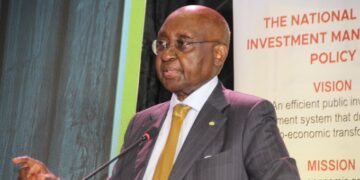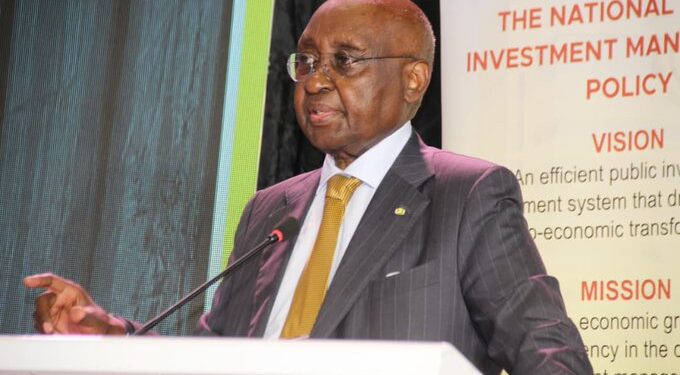Leaders, policymakers, development experts, and academics gathered on Thursday at Makerere University’s Yusuf Lule Auditorium for the 2nd Public Investment Management Conference, held under the theme “Overcoming Implementation Barriers in Public Investment Management for Fiscal Sustainability.”
The high-level event, hosted by Makerere University’s Public Investment Management Centre of Excellence, focused on strengthening Uganda’s capacity to plan, appraise, and deliver high-quality public projects that transform lives and drive fiscal sustainability.
Opening the conference, Prof Buyinza Mukadasi, the Deputy Vice-Chancellor, Academic Affairs, speaking on behalf of the Vice Chancellor, welcomed delegates and stressed the country’s need to strike a careful balance between rapid economic growth and prudent fiscal management.

“Uganda is at a pivotal point in its development journey, balancing the urgency to accelerate economic growth with the equally critical need to maintain fiscal discipline,” he said. “The country’s ambitious development agenda, as outlined in the National Development Plan IV (NDPIV) and the Tenfold Growth Strategy, hinges on large-scale, high-impact public investments in infrastructure, industrialisation, human capital, and social services.”
Prof. Mukadasi cautioned that Uganda’s development ambitions could be undermined by persistent implementation challenges. “The success of these transformative programmes depends on overcoming weak institutional capacity, procurement delays, cost overruns, and gaps in monitoring that undermine efficiency, accountability, and value for money,” he noted.

He commended the Public Investment Management Centre of Excellence for training public servants, supporting policy reforms, and conducting research to improve project delivery. “Our commitment to national development is demonstrated by the work of the Centre, which strengthens the capacity of public officials from proposal development to full project implementation,” he said.
The keynote speaker, Dr. Donald Kaberuka — former Rwandan Minister of Finance and 7th President of the African Development Bank — delivered a thought-provoking address on the real barriers to Africa’s development.
“Africa continues to face a resource gap,” Dr. Kaberuka said. “We have seen countries invest heavily without development results, and others achieve progress with fewer resources. The difference often lies not in the size of the investment, but in the capacity to implement and execute government policies and programmes.”

Reflecting on Africa’s development lessons from the 1980s, Dr. Kaberuka explained that technical excellence must be matched with political feasibility and implementability. “A good policy is like a triangle,” he said. “It must be technically sound, politically feasible, and implementable. If a policy fails on any of these three, you must go back and realign it.”
He also emphasised the broader purpose of public financial management. “Public financial management isn’t simply about efficiency; it is also about building social capital through expenditure,” he said.

“For instance, spending on Health is not simply about the national budget for health but also about the dependent nature of expenditures. To achieve a certain level of health, it will require expenditure in, say, water and sanitation, which is not in the health sector. So, the focus should be on outputs. What is the total sum of your output? That should guide expenditure.”
The conference also featured a panel of distinguished experts, including Eng. Isaac Wani (Ministry of Works and Transport), Dr. Verena Fritz (World Bank), Dr. Joseph Muvawala (National Planning Authority), Eng. Irene Bateebe (Ministry of Energy and Mineral Development), and Mr. Manish Siyani (PBS Empire East Africa). They discussed practical solutions to accelerate project delivery, improve monitoring, and ensure value for money in public investment.









